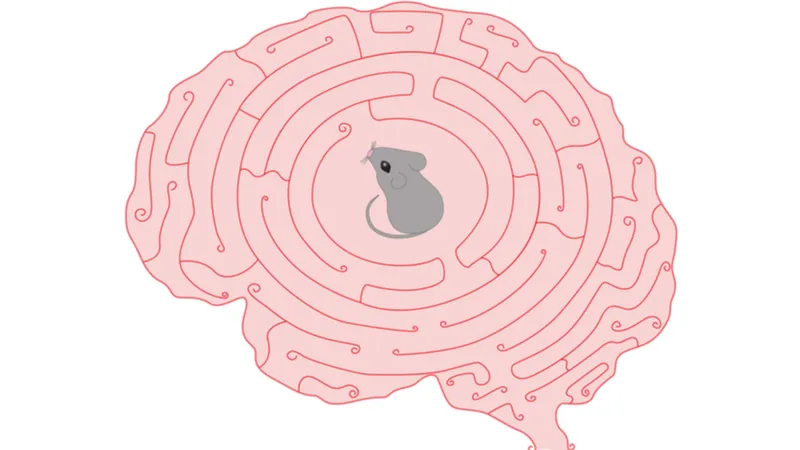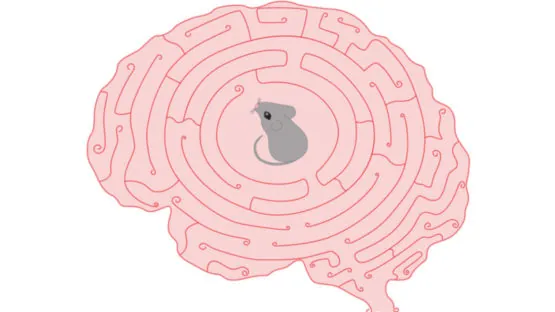According to a new study, Alzheimer’s disease is connected to inflammaging, which causes B-cells to change their phenotype and hamper amyloid-β (Aβ) removal [1]. Following successful experiments in vivo, the scientists propose B cell depletion as a possible therapy.
The darker side of B cells
Alzheimer’s disease (AD) is deadly, frustratingly resilient to treatment, and highly correlated with aging. Billions of dollars and millions of person-hours have been spent searching for a cure to no avail. One of the hallmarks of AD is the accumulation of Aβ plaques in the brain, but there is an ongoing debate about whether they are a symptom or a cause of AD. So far, targeting those plaques directly has only managed to slow the disease’s progression. Given the limited success of previous approaches, every new one attracts a lot of interest.
In this paper, a group of researchers delve into the role that B cells play in AD. B cells are immune cells that, along with T cells, facilitate our adaptive immune response. Their role in AD progression has not been well researched until now, but it was found to be largely beneficial.
In their paper, the researchers reveal what they call the darker side of B cells. The group used three different murine AD models: genetically engineered mice that recapitulate AD symptoms and progression. In all models, the disease progression correlated with a marked increase in the number of B-cells in circulation and in the brain. However, when B-cell production had been genetically downregulated in these AD-prone mice, they experienced much fewer AD symptoms: better cognitive and memory abilities and fewer Aβ plaques.
The researchers then tried to achieve similar results via therapeutic B-cell depletion and found that it can be done if the therapy begins at the onset of the disease. They then endeavored to discover why and how B-cells exert two seemingly opposite effects on one disease.
Inflammaging yet again?
Our body has a built-in mechanism for removing excess Aβ. The clearance is performed by microglia and astrocytes (types of brain cells) and is normally helped by B-cells. The problem is, like many other maintenance mechanisms, this one becomes dysregulated with age, which might explain the aging-related nature of AD.
The researchers think that age-related chronic inflammation (inflammaging) might be responsible. As a result of inflammaging, microglia become sick and less effective, while the same B-cells that have been helping microglia to clear out Aβ plaques acquire an inflammatory phenotype and contribute to inflammaging in the sort of feedback loop that is often found in biology.
This additional inflammation probably outweighs B-cells’ positive effect. Moreover, experiments suggest that increased inflammation causes B-cells to start attacking microglia. This “Jekyll and Hyde” hypothesis is supported by recent research. One study, for instance, found that inflammaging can change B-cells of a certain subtype from healthy to pathogenic [2].
Further proving the point, in elderly mice with the AD phenotype, the number of Aβ-clearing microglia was significantly lower than in healthy controls; this effect was reversed, and the Aβ load was reduced, following B-cell depletion.
The researchers’ proposal – to decimate the B-cell population in the body – may seem controversial, since B-cells are an integral part of our immune system, but B-cell depletion therapy (BCDT) already exists. Initially conceived as a method of eliminating cancerous B cells, it is now successfully used against various autoimmune diseases [3], so, theoretically, nothing prevents it from being deployed against AD.
However, there is a more general conclusion to be drawn: if, as the study suggests, this chain of AD-exacerbating events is triggered by inflammaging, the ultimate answer may lie in curbing it. Longevity researchers have realized the importance of fighting inflammaging long ago, and a lot of work has already been done. This paper supports the hypothesis that inflammaging simultaneously drives many different aging-related problems.
Fortunately, we have multiple practical methods of reducing the risk of inflammaging, such as switching to healthier lifestyles. Research shows that healthy dietary practices [4] and physical activity [5] can lower the risk of AD, and inflammaging may be part of why.
Conclusion
This paper suggests an intriguing connection between Alzheimer’s disease and inflammaging. This paper shows that age-related chronic inflammation provokes a transformation of B-cells, making them harmful to the process of Aβ removal. The paper also suggests B-cell depletion as a possible therapy, but other ways of lowering inflammaging can potentially prove effective as well.
Literature
[1] Kim, K., Wang, X., Ragonnaud, E., Bodogai, M., Illouz, T., DeLuca, M., … & Biragyn, A. (2021). Therapeutic B-cell depletion reverses progression of Alzheimer’s disease. Nature Communications, 12(1), 1-11.
[2] Lee-Chang, C., Bodogai, M., Moritoh, K., Olkhanud, P. B., Chan, A. C., Croft, M., … & Biragyn, A. (2014). Accumulation of 4-1BBL+ B cells in the elderly induces the generation of granzyme-B+ CD8+ T cells with potential antitumor activity. Blood, The Journal of the American Society of Hematology, 124(9), 1450-1459.
[3] Lee, D. S., Rojas, O. L., & Gommerman, J. L. (2020). B cell depletion therapies in autoimmune disease: advances and mechanistic insights. Nature Reviews Drug Discovery, 1-21.
[4] Morris, M. C. (2009). The role of nutrition in Alzheimer’s disease: epidemiological evidence. European Journal of Neurology, 16, 1-7.
[5] Meng, Q., Lin, M. S., & Tzeng, I. (2020). Relationship between exercise and Alzheimer’s disease: A narrative literature review. Frontiers in neuroscience, 14, 131.





